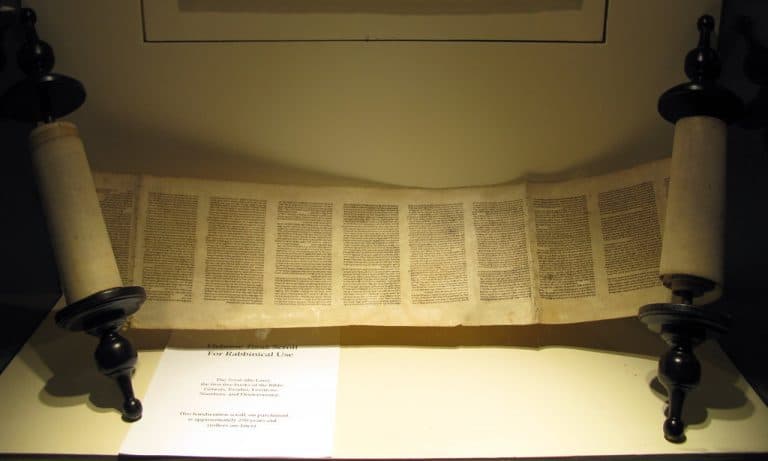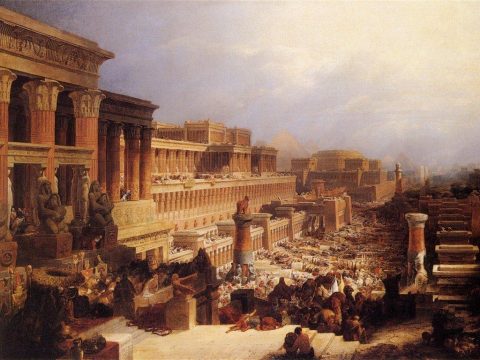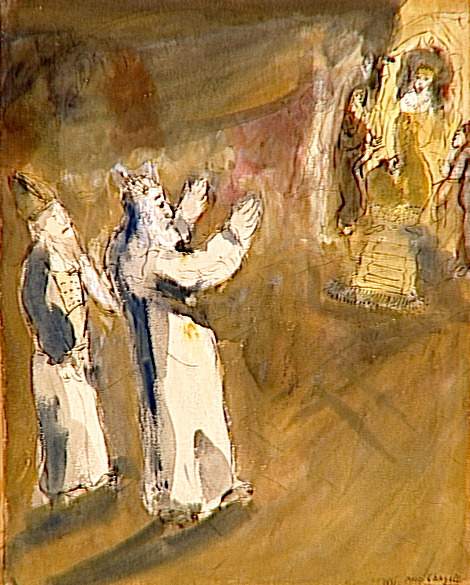Mishpatim – Ex. 21:1-24:18 (Feb 21/22)

As the Torah Turns
Rabbi Lader’s Weekly D’var Torah
Mishpatim – Ex. 21:1-24:18 (Feb 21/22)
This week’s Torah portion is Mishpatim – Ex. 21:1-24:18. Rabbi David Finkelstein, Rabbi of Temple Beth Israel in Waltham, MA, sees in the text inferences to “Blindness We Cannot See.” Among the Morning Blessings, recited each day, is the one in which we praise God for giving sight to the blind, poqe’ach’ ivrim. This blessing is striking in its simplicity. All sight comes from God as a gift, except, of course, to those who are born blind. The latter thought can be troubling. Does a Jew who was born blind still say this blessing? But maybe this blessing isn’t exclusively about sight. Could it be that blindness stands in here for all the senses, even non-physical ones? In this week’s portion, Mishpatim, the first portion in the Torah that is comprised mostly of laws, the above phrase from our morning blessings gets turned on its head: “You shall not take a bribe, for a bribe blinds those who can see and perverts the words of the righteous” (Exodus 23:8). In Hebrew, the phrase “blinds those who can see” is ye’ahva’ir piq-chim. The idea that God gives sight to the blind is not original in our morning blessing. We see that notion in Psalm 146, which is probably the source for our morning blessing. The one who takes a bribe, then, is doing the opposite of what God does. The mistake that the verse from our portion warns us against is even more than a matter of failing to imitate God. One who takes a bribe still was made in God’s image, but they turn away from imitating God and their behavior is a perverse inversion of God’s will. In Midrash Tanchuma, Parashat Shofetim, 8, we find the following explanation: “As soon as a judge has given away her heart for a bribe she becomes blind in judgment and is no longer able to judge the case truthfully.” The verdict of the case is not the only value here. There is another value, judging truthfully, which must be upheld.

This other value is the value of unbiased judgment. Even a judge who is biased can deliver the right verdict, but such a judge cannot judge truthfully. Freedom from bias is a crucial aspirational value of all justice systems, and it is also a value for all people, whether we sit as judges or not. Rabbi Avraham of Sochotchov, the student and son-in-law of the Kotsker Rebbe, explains why bias is such a serious matter: “When a person is blind, he realizes it and will ask someone who can see to help him. But if a person has a bias, the bias blinds him to such an extent that he does not even realize that he is blind. He feels that what he perceives is reality and will refuse to listen to others” (Growth through Torah, by Zelig Pliskin). Whether we serve as judges or not – most of us not – bias is a distortion of reality that distances us from the truth. We might pray for God to open our eyes. Even when we bless God for being the One who gives sight to the blind, poqe’ach ‘ivrim, we might think of truth and our desire to stay close to it. We might combine two of our morning blessings and say, “Blessed are You, Eternal our God, Sovereign of the universe, who releases us from our biases, making us aware of the truth.” And maybe, if we’re really serious, we might take a little time to examine our own biases, our own blind spots.
From Previous Weeks

Yitro – Ex. 18:1-20:23 (Feb 14/15)
As the Torah Turns Rabbi Lader’s Weekly D’var Torah Yitro – Ex. 18:1-20:23 (Feb 14/15) Our Torah portion this week…

Beshalach – Ex. 13:17-17:16 (Feb 7/8)
As the Torah Turns Rabbi Lader’s Weekly D’var Torah Beshalach – Ex. 13:17-17:16 (Feb 7/8) This week’s Torah portion is Be’Shelach – Ex….

Bo – Ex. 10:1-13:16 (Jan. 31/Feb.1)
As the Torah Turns Rabbi Lader’s Weekly D’var Torah Bo – Ex. 10:1-13:16 (Jan.31/Feb.1) This week’s Torah portion is Bo…

Va’era’ – Ex. 6:2-9:35 (Jan. 24/25)
“And I will harden Pharaoh’s heart, and multiply My signs and wonders in the land of Egypt.”

